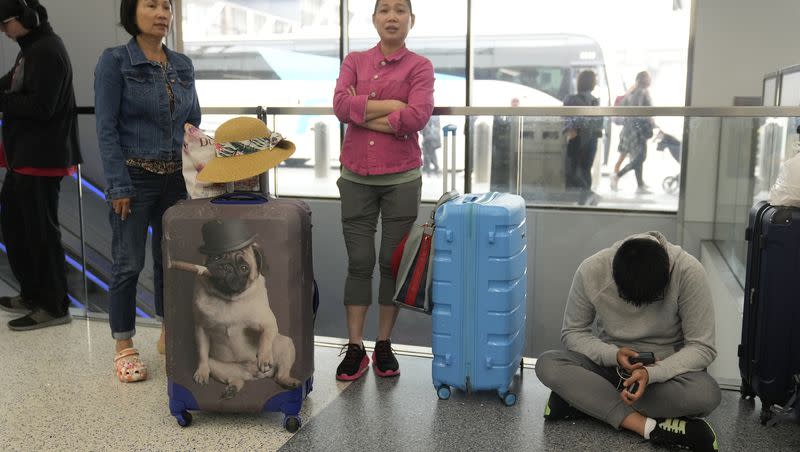Travelers face expected record-breaking, chaotic Fourth of July travel weekend

Travelers gear up for an expected record-breaking Fourth of July travel weekend, facing flight delays, traffic and large crowds. For the first time in four years, the number of Americans traveling over the holiday weekend is expected to surpass levels prior to the COVID-19 pandemic.
Airlines have already canceled thousands of flights over the week, many due to “pop-up storms” on the East Coast, The Wall Street Journal reported.
In preparation for the busy summer, many U.S. airlines have trimmed schedules and increased staff numbers in hopes of preventing disruptions. Travel group AAA predicts that “about 50 million Americans will travel 50 miles or more from home” starting Friday until Tuesday, July 4, per Reuters.
The previous record number of travelers during the Fourth of July weekend was 49 million in 2019, according to The Washington Post.
“A lot of people are going to be traveling, and that’s despite high ticket prices, despite inflation. People still have that desire to get out of town and do something fun,” Aixa Diaz, AAA spokesperson, told NPR.
Transportation Secretary Pete Buttigieg also warned that another factor in disrupting flight schedules is outdated tech. According to The Associated Press, “only planes retrofitted with the right equipment will be allowed to land when visibility is poor.”
United Airlines faced a challenging week with dayslong disruptions and more than 2,400 canceled flights starting Sunday — “its worst stretch” since the beginning of the pandemic. The Post reported that it appears United is starting to recover from a rough week, cancelling a much smaller percentage of flights Thursday compared to Sunday. Union officials blamed the United challenges on not preparing enough staff members and enough training for staff.
“... Supersonic jets, electric air taxis — that’s all great, but if you lose focus on the core operation of the airline, which requires adequately trained and adequate numbers of staff, you’re going to fall apart,” Garth Thompson, chair of the United Master Executive Council of the Air Line Pilots Association, told the Post.
How to prepare for possible flight disruptions during Fourth of July weekend
If you’re planning on flying this weekend, here are some tips on what to do if your flight gets delayed or canceled.
Be aware of weather forecasts. Some airlines offer waivers that allow you to change your flight without a fee if a big weather event could disrupt your flight.
Check flight status before you head to the airport and keep your email notifications on for possible updates on your flight from the airline. You can also put your airline and flight number into Google search to discover the status of your flight.
If your flight is delayed or canceled, Scott Keyes told CNN to get to the customer service help desk ASAP. “It’s going to make a difference who arrives first. It’s first-come, first-serve. Positioning yourself close to the desk can pay off.”
While you’re in line, start checking for other flights from the same airline or another airline if necessary. If you’re stranded away from home, you can also look for hotels that offer free cancellation.
Keyes also advises to remain calm and kind with airline agents as you sort out the travel challenges. “Asking nicely and sympathetically is far more likely to get what you want than being a jerk about it.”
If your flight gets so far delayed or canceled that you decide you don’t want to take the trip anymore, you may be entitled to a refund of the cost of your ticket, according to the U.S. Department of Transportation.
How to beat the Fourth of July traffic rush
Friday is likely to bring the worst time to drive, with traffic nearly 30% higher than usual. Sunday and Monday will likely have lower driving times, and traffic is expected to pick back up Wednesday afternoon, as reported by the Post.
The earlier you can leave on your journey, the better. Allowing yourself a time cushion before you need to be where you’re going could reduce a lot of the stress.
Early mornings or late nights will be your best bet to avoid the heaviest midday traffic, according to Bob Pishue, transportation analyst for transportation data company Inrix. Pishue told USA Today, “People are getting out in midday and afternoons. Not so much in the morning. So leave early — that’s generally the best.”
